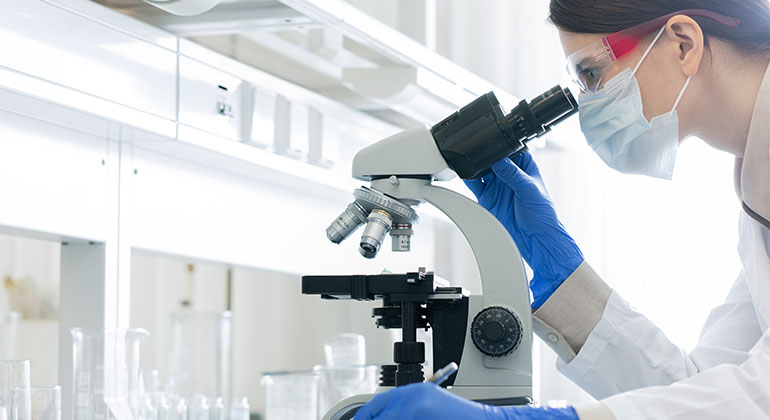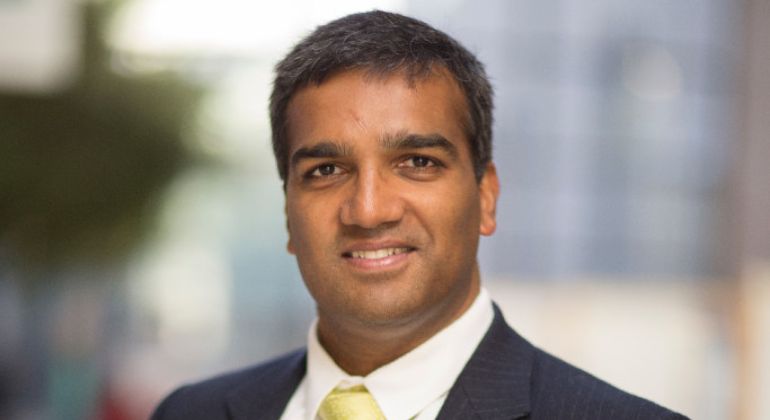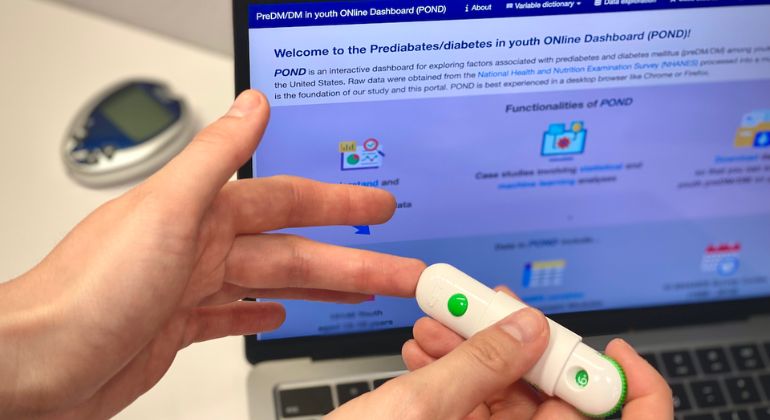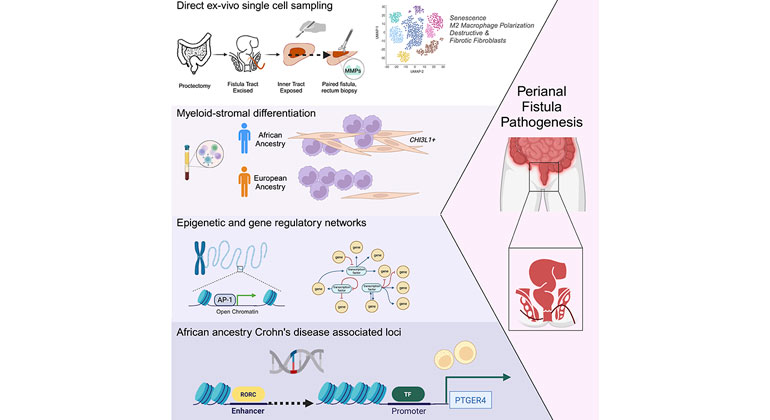Mount Sinai Researchers Identify New Drug Target for Depression and Neuropathic Pain
Increased levels of brain protein in response to antidepressants may lead to new therapies
Common antidepressants cause an increase of a certain protein in human and mouse brains. Based on this new understanding, researchers at the Icahn School of Medicine at Mount Sinai are investigating whether this protein may be a useful target in developing new treatments or adjuvant therapies for depression and neuropathic pain. The study is published online in the Proceedings of the National Academy of Sciences.
A report from the U.S. Centers for Disease Control & Prevention shows that 1 in 10 Americans over the age of 12 take antidepressants, such as selective serotonin reuptake inhibitors (SSRIs) or tricyclic antidepressants (TCA). However, response is always delayed and as much as 60 percent of people do not respond to medications, according to the U.S Department of Health and Human Services. Side effects such as headaches, nausea, and sexual problems are also problematic for some patients, demonstrating an umnet need for new therapeutic pathways.
Led by Venetia Zachariou, PhD, Associate Professor of Neuroscience and of Pharmacology and Systems Therapeutics at the Graduate School of Biomedical Sciences at Mount Sinai, and in collaboration with Carol A. Tamminga, MD, of the University of Texas Southwestern Medical Center at Dallas, the research team evaluated postmortem human brains from subjects that had been treated with antidepressants before death and some that had not. They noticed that a protein called RGS4 was much more abundant in key parts of the brains of people on antidepressants, especially the nucleus accumbens (NAc), part of the brain reward center, compared to those who were not.
“RGS4 dysfunction has been linked to many diseases, including hypertension, schizophrenia, and Parkinson’s disease,” said Dr. Zachariou. “Now we know that this protein is a key modulator of antidepressant drug responses as well.”
Armed with their findings from the postmortem human brains, Dr. Zachariou’s team created an animal model in which they removed, or “knocked out,” RGS4 in mice. They found that treatment with antidepressants such as SSRIs—which are designed to help increase serotonin levels in the brain—did not work in the knock-out mice, compared to a positive response in the control group. Tricyclic antidepressants like desipramine are known to alleviate neuropathic pain symptoms as well, and this action too was reduced in RGS4 knockout mice. In a different genetic mouse model, in which RGS4 activity was increased in the brain reward center, animals showed a robust response to antidepressant treatment.
The researchers also treated the mice with an experimental antidepressant called ketamine, currently used as an anesthetic, which works on a different pathway than the more traditional antidepressants. They found that, in this case, the knock out mice responded better to treatment with ketamine compared to the control group, in striking contrast to findings with traditional antidepressants.
“These findings may help us develop new therapies that act as standalone antidepressants or as adjuvants to boost the response of existing antidepressants, so that lower doses may be given and side effects reduced,” said Dr. Zachariou. “In addition, we are planning to evaluate RGS4 and its genetic information to determine a new biomarker for treatment resistance. This will help us tailor treatments for patients who may have a mutation affecting RGS4 so that they get a better response, faster.”
Dr. Zachariou plans to identify genetic variants in RGS4 expression to create biomarkers for drug responsiveness. Her team also wants to take a closer look at the mechanism of RGS4 and its interacting partners to begin developing chemical compounds that modulate its action in the NAc.
About The Mount Sinai Medical Center
The Mount Sinai Medical Center encompasses both The Mount Sinai Hospital and Icahn School of Medicine at Mount Sinai. Established in 1968, the Icahn School of Medicine at Mount Sinai is one of the leading medical schools in the United States. The Icahn School of Medicine is noted for innovation in education, biomedical research, clinical care delivery, and local and global community service. It has more than 3,400 faculty members in 32 departments and 14 research institutes, and ranks among the top 20 medical schools both in National Institutes of Health (NIH) funding and by U.S. News & World Report.
The Mount Sinai Hospital, founded in 1852, is a 1,171-bed tertiary- and quaternary-care teaching facility and one of the nation’s oldest, largest and most-respected voluntary hospitals. In 2012, U.S. News & World Report ranked The Mount Sinai Hospital 14th on its elite Honor Roll of the nation’s top hospitals based on reputation, safety, and other patient-care factors. Mount Sinai is one of just 12 integrated academic medical centers whose medical school ranks among the top 20 in NIH funding and by U.S. News & World Report and whose hospital is on the U.S. News & World Report Honor Roll. Nearly 60,000 people were treated at Mount Sinai as inpatients last year, and approximately 560,000 outpatient visits took place.
For more information, visit http://www.mountsinai.org.
Find Mount Sinai on:
Facebook: http://www.facebook.com/mountsinainyc
Twitter @mountsinainyc
YouTube: http://www.youtube.com/mountsinainy
# # #
About the Mount Sinai Health System
Mount Sinai Health System is one of the largest academic medical systems in the New York metro area, with 48,000 employees working across eight hospitals, more than 400 outpatient practices, more than 600 research and clinical labs, a school of nursing, and a leading school of medicine and graduate education. Mount Sinai advances health for all people, everywhere, by taking on the most complex health care challenges of our time—discovering and applying new scientific learning and knowledge; developing safer, more effective treatments; educating the next generation of medical leaders and innovators; and supporting local communities by delivering high-quality care to all who need it.
Through the integration of its hospitals, labs, and schools, Mount Sinai offers comprehensive health care solutions from birth through geriatrics, leveraging innovative approaches such as artificial intelligence and informatics while keeping patients’ medical and emotional needs at the center of all treatment. The Health System includes approximately 9,000 primary and specialty care physicians and 11 free-standing joint-venture centers throughout the five boroughs of New York City, Westchester, Long Island, and Florida. Hospitals within the System are consistently ranked by Newsweek’s® “The World’s Best Smart Hospitals, Best in State Hospitals, World Best Hospitals and Best Specialty Hospitals” and by U.S. News & World Report's® “Best Hospitals” and “Best Children’s Hospitals.” The Mount Sinai Hospital is on the U.S. News & World Report® “Best Hospitals” Honor Roll for 2024-2025.
For more information, visit https://www.mountsinai.org or find Mount Sinai on Facebook, Twitter and YouTube.
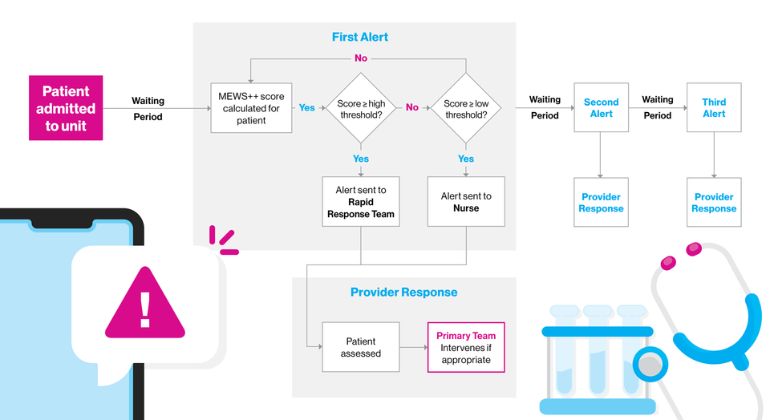
AI Can Help Doctors Make Better Decisions and Save Lives
Jun 13, 2024 View All Press Releases